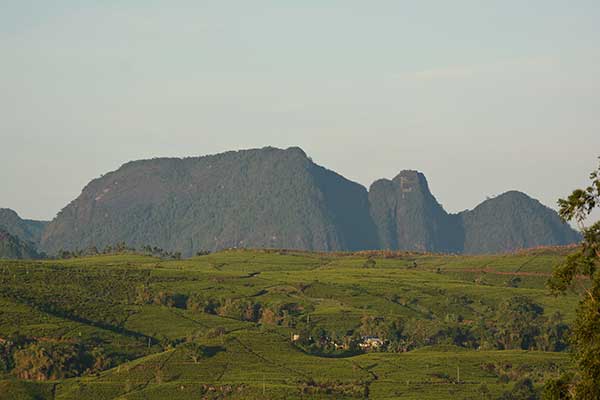The women of the hills who serve you tea
By Zhao Xu ( China Daily ) Updated: 2017-04-22 07:10:10
 |
|
Part of the vast tea land in central Sri Lanka.[Photo Provided by Malaka Rodrigo and Vishwamithra Kadurugamuwa] |
Vicissitudes of life
Many of the earliest workers were tramps lured onto the tea plantations by the promise of an easy life who instead found themselves indentured laborers driven to death by hard work. Over the past year, as a sore reminder of the brutal history, the tea pickers in Assam, who are the offspring of those early laborers, have been demanding to be recognized as a separate group, a group not defined by the caste system. (The caste system, according to my friend, is very much alive in India.)
"Centuries of isolation - all the tea plantations are located deep in the mountains - have given them a unique culture, culture they've maintained with mixed feelings," Paul said.
From the early 16th century until Sri Lanka's proclamation of independence on Feb 4, 1948, the country has been under colonial rule - partially or completely - by the Portuguese, the Dutch and the British consecutively. The British introduced tea plantations to Sri Lanka, then known as Ceylon.
To solve the labor shortage, 50,000 workers were brought in from India.
When our bus drove through the tea land at night I saw glimmering light coming from the valleys below.
As this light abruptly appeared and then disappeared as we made twists and turns on the tortuous mountain road, it struck me that every shard of light could represent a tea picker's family.
It reminded me of the crosses, tomb markers standing along certain sections of the road, at the foot of the mountain. In previous days I had seen Portuguese-style churches wedged between a typical leafy Sri Lankan courtyard and a Buddhist monastery. It was this sight of the humble-looking Christian tombstones - whose owners were most likely to be tea pickers or growers - that was one of the most memorable moments of my journey.
Once upon a time their ancestors were the conquerors. But the vicissitudes of life have changed many things, weaving different lives - those of Buddhists, Hindus, Muslims and Christians - together on this ancient land, with a history much richer than a cup of Ceylon tea.
|
|
|
|
|
|
|
|

























 Raymond Zhou:
Raymond Zhou: Pauline D Loh:
Pauline D Loh: Hot Pot
Hot Pot Eco China
Eco China China Dream
China Dream China Face
China Face






